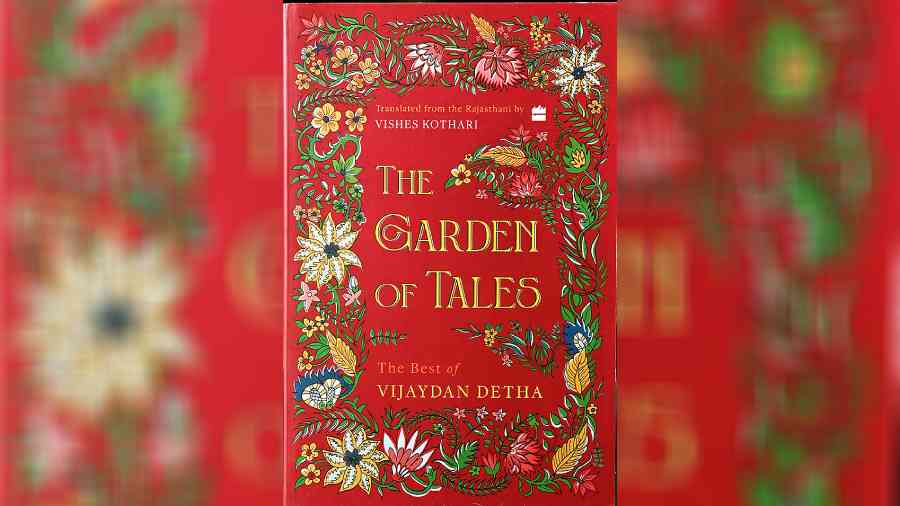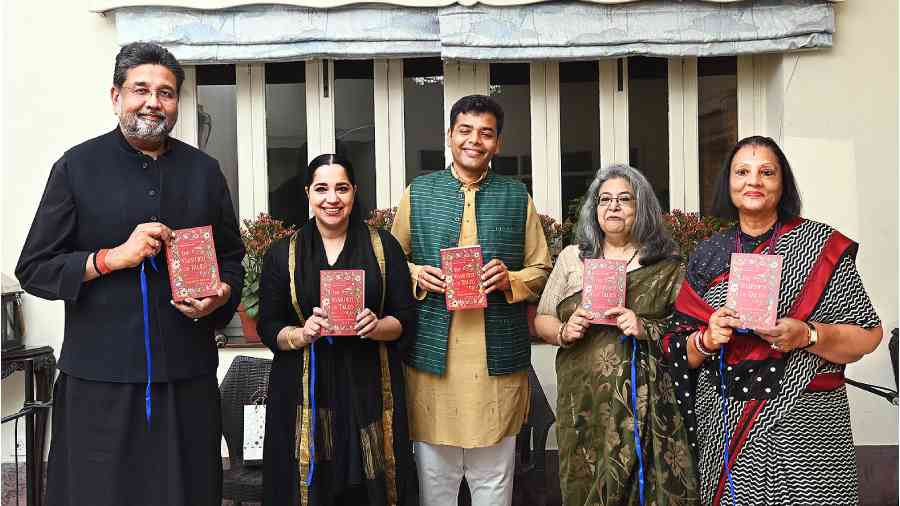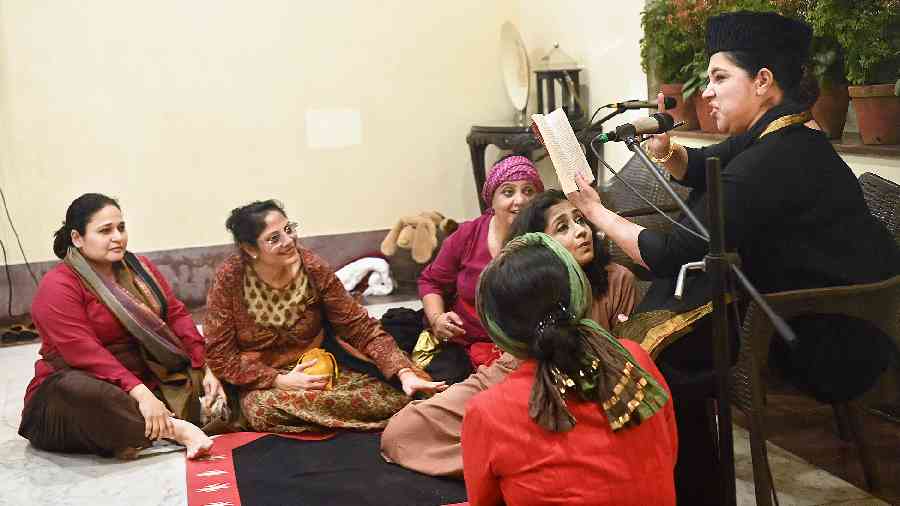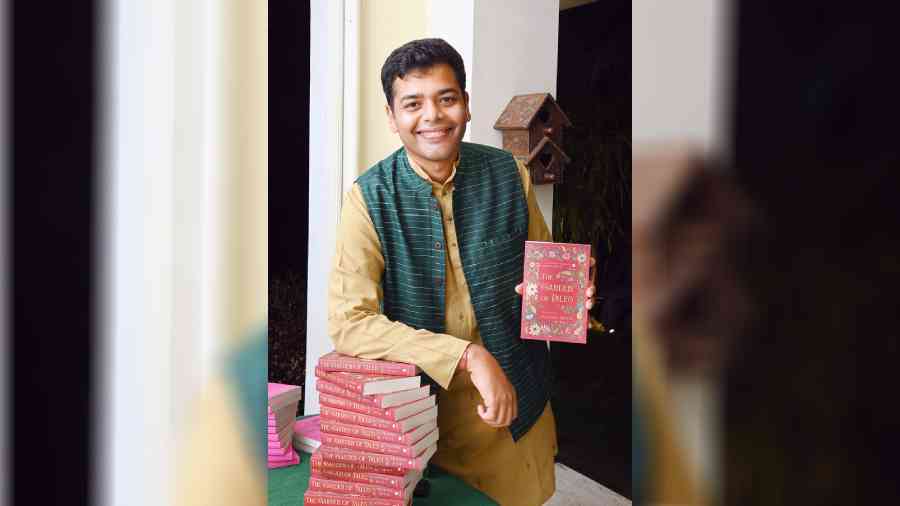Rajasthani writer Vijaydan Detha’s colourful stories have fascinated generations of readers. His writings bring out the region’s rich cultural and literary heritage. Detha is known to have expanded upon folk tales common in Rajasthan and collected conversations with villagers and wandering monks to create his tales. And these stories are now available in English, thanks to Vishes Kothari. His latest translation venture, The Garden of Tales: The Best of Vijaydan Detha, published by HarperCollins India, is a collection of 18 short stories from the 14 volumes of Detha’s original Rajasthani text, Baataan Ri Phulwari.

The book was recently launched at the Alka Jalan Foundation, with an engaging conversation and storytelling session with philanthropist and business icon Harshavardhan Neotia unveiling the book. Kothari, whose first collection, Timeless Tales of Marwar by Puffin Classics, was released in 2020, has meticulously translated the stories in this current collection from Rajasthani. Many of these stories have never before been released in translation, making The Garden of Tales a unique collection indeed. In his conversation with editor and theatre critic Anjum Katyal at the launch, Kothari mentioned this collection was also to emphasise the rich literary history of the Rajasthani language. We caught up with him at the launch. Excerpts:
How does it feel to launch the book in Calcutta?
It is very special to come back to Calcutta and talk to my friends, family and relatives about the book. Calcutta has also traditionally been where Marwaris have had a stronghold. So, to talk to a Marwari audience about Rajasthani literature in translation is also special. Calcutta has always famously had a more literary audience so it is special to have the launch here that way too. Plus, the theatre element that was added through the performance today made it even more unique because the folk tale was actually told as it used to be done traditionally.

L-R: Harshavardhan Neotia, Ramanjit Kaur, Vishes Kothari, Anjum Katyal and Alka Jalan at the launch of the book. “Like Vishes said, the book is about bringing those stories that are true to our culture, and true to our country, available to the masses because otherwise, it is in a particular language. Having it available for everyone helps us get closer to our cultural identity,” said Neotia.

Ramanjit Kaur and group put up a thrilling and incredibly emotive storytelling performance based on a short story from The Garden of Tales.
Were there any difficulties that you faced during translating? Did you feel English was sufficient to express the nuances of the original stories?
Every language comes with its own set of limitations and it also has its advantages. I think any act of translation involves compromise and negotiation. There is no one formula to preserve the texture of originals in translation. It has to be a case-by-case study of how best to represent literature in translation.
What was the inspiration behind undertaking the task of translating these stories?
There was no such particular moment for doing this. It was mainly because there are no Rajasthani-English translators today. It is also because people are increasingly more interested in representing Indian regional languages in translation, which was a motivation. And Vijaydan Detha was one of the most important writers of Rajasthani literature in the 20th century so he was the obvious choice.
Do you think the younger generation can benefit from such translations?
It can certainly encourage people to reevaluate their ideas about what literature is. Our grandparents or people who work for us, even they can have something literary to contribute because we tend to think of literature and culture in a very particular way. This can also help people take what is around them, like oral traditions, more seriously. I think that would be a battle half-won for me.
